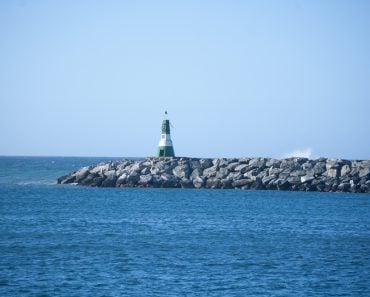Table of Contents (click to expand)
The sailors in the late 19th century dumped oil in the sea while sailing because they believed that it would help calm the violent waves. This technique worked by forming a thin, slippery layer of oil on the surface of the water that made it difficult for wind to tug water molecules and create those fierce waves. Sailors also believed that oil slowed the wind down during a violent storm.
This might come as a shock, especially if you’re an environment enthusiast, but in the late 19th century, sailors used to dump oil in the sea on purpose! Sailors used to stockpile different kinds of oil – vegetable oil, mineral oil and even sperm whale oil – just so that they could dump it in water.
It may seem like a incredibly pointless exercise, but they did have a ‘good’ reason to spill those valuable oils in water. In fact, they believed that oil could help calm violent waves in the ocean.
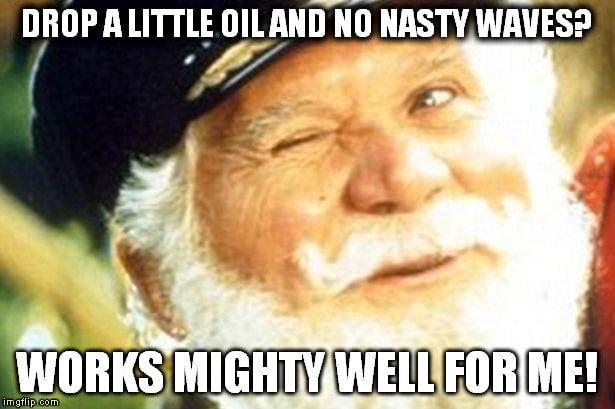
Their trick worked, and in fact, it still does! There is an entire book titled The Use of Oil to Lessen the Dangerous Effect of Heavy Seas, which talks about the kinds of oil used by various captains at different points in history to calm sea waves.
Technology, back in the day, was not nearly as advanced as it is now, so ships back then were not as sturdy as the ones used these days to maneuver through choppy waters. This seemingly strange ‘oil-spill’ technique helped them to calm waves and somewhat “master” storms.
Recommended Video for you:
How Does Oil Help To Calm Ocean Waves? – Immiscible Liquids
The reason is one you’re surely heard of before: the mutual hatred between water and oil. They are immiscible liquids; in other words, they don’t mix completely with each other under standard conditions. If you put these liquids in a container and shake them violently, they may seem to mix at first, but will separate all by themselves after some time.
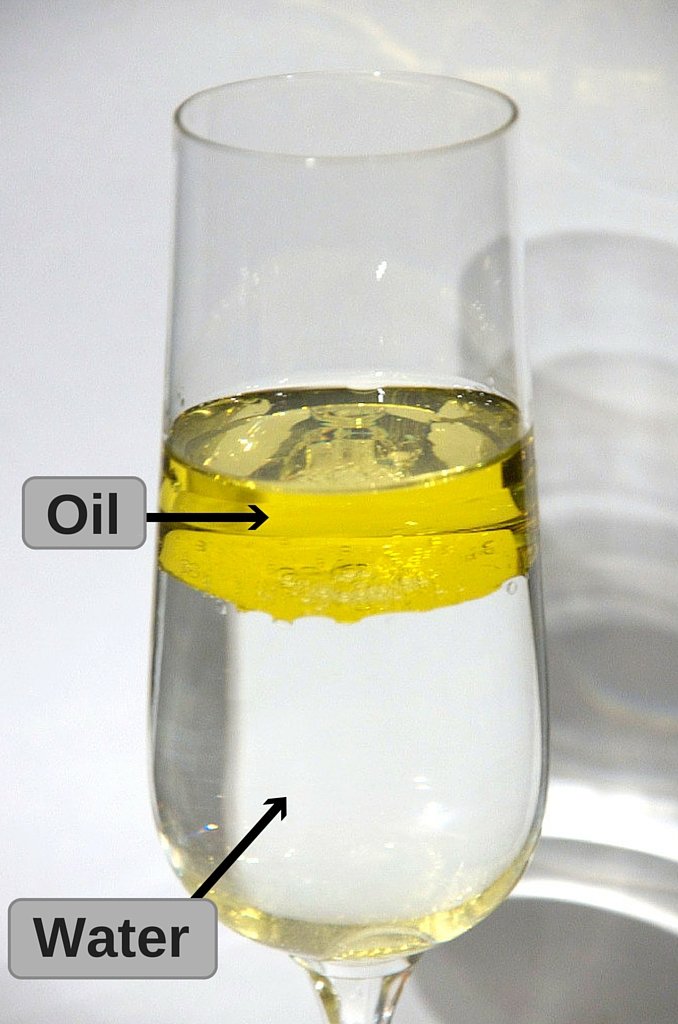
This mutual hatred between oil and water results in this fantastic application for calming violent waves.
Under normal conditions, i.e., in the absence of spilled oil in water, fast-blowing winds can easily grab water molecules and then drag and toss them around without much resistance, causing violent and dangerous waves.
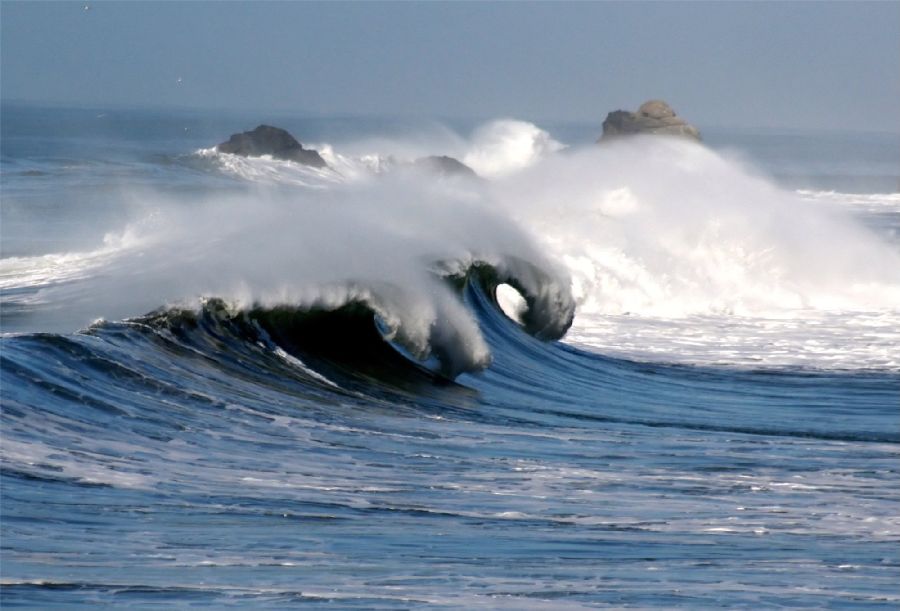
However, when oil is spilled in water, it forms a very thin layer above the surface of the water. This thin, slippery layer of oil makes it difficult for wind to tug water molecules and create those fierce waves. Thus, oil acts as a protector for seawater from the wind. A small quantity of oil dropped overboard by sailors would help to calm the waves around their ships. Therefore, what happens if a wave is formed elsewhere and crashes over the water around your ship (which already has an oil layer on top of it)?
The thin layer of oil would actually still be quite effective. You see, water is denser than oil; so when another wave crashes upon the oil-filmed water, it ‘sinks’ through the oil film, which sucks a lot of energy out of the wave.
Sailors also believed that oil slowed the wind down during a violent storm. Water droplets that get kicked up in the air allow air to move more rapidly over the surface of the water, thus making the storm more violent. The oil film shields the water beneath it, thereby preventing water droplets from forming – essentially mitigating the effects of a storm.
Believe it or not, spilling even a small amount of oil (less than a gallon per hour) could calm the waves around the ship to a great extent.
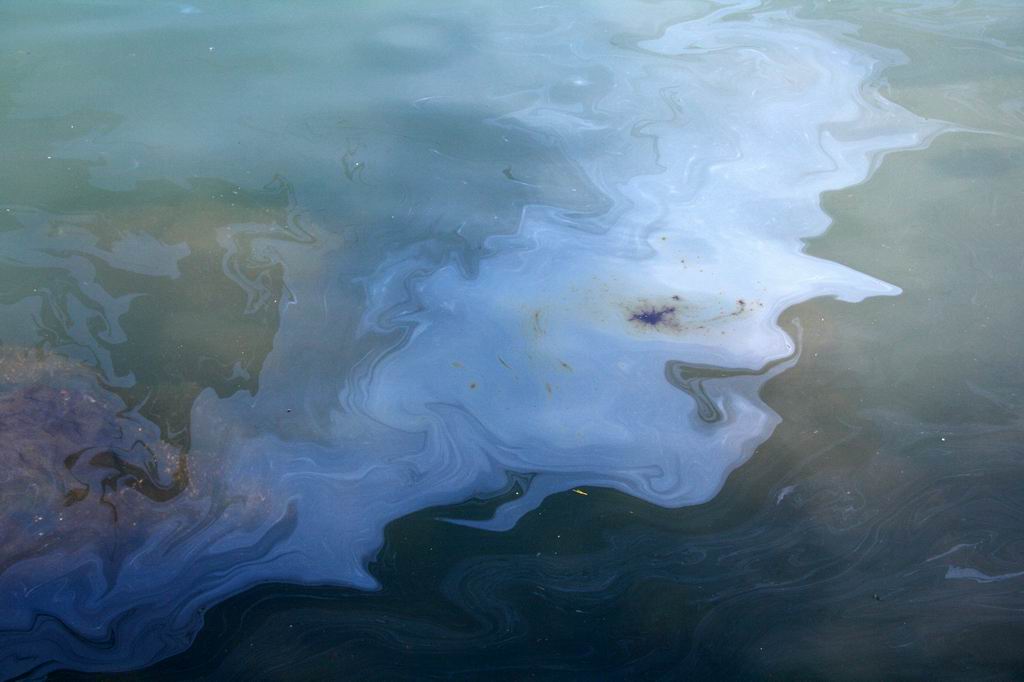
This technique can still work for boats and cruise ships that go on long voyages on the sea. However, due to the obvious detrimental effects, such as the destruction that an oil spill can have on aquatic life, this technique is no longer used.
With rapid improvements in technology, there are ample measures and systems now in place that safeguard a ship during a storm. However, you have to give some praise to those ancient mariners for their scientific acumen, because they did come up with a basic, yet highly effective way to master the waves!
References (click to expand)
- History of the North Sea - Wikipedia. Wikipedia
- Sailors' superstitions - Wikipedia. Wikipedia
- Dumping Oil In the Ocean Lets You Literally Master the Waves. Gizmodo
- MacDonald, I. R., Garcia‐Pineda, O., Beet, A., Daneshgar Asl, S., Feng, L., Graettinger, G., … Swayze, G. (2015, December). Natural and unnatural oil slicks in the G ulf of M exico. Journal of Geophysical Research: Oceans. American Geophysical Union (AGU).
- Committee on Oil in the Sea: Inputs, Fates, and Effects, Ocean Studies Board, Marine Board, Transportation Research Board, Division on Earth and Life Studies, & National Research Council. (2003). Oil in the Sea III. []. National Academies Press.




